State Collections
The collections on this page represent a portion of our holdings related to those who held elected or appointed office in the United States at the state level.
State Collections
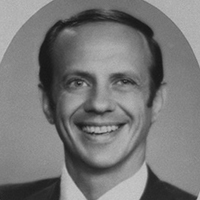
Donald G. Adams graduated from Baylor University in 1963 and began legal practice in Lufkin, TX. After two years he formed a legal partnership with his father in Jasper.
Adams (D, TX House-7) was elected to the Texas House of Representatives in 1968. He served on several committees including Agriculture, Counties, Criminal Law, Criminal Jurisprudence, Insurance, Mental Health and Mental Retardation, Motor Transportation, and Imported Fire Ant Infestation. Adams largely avoided the political fallout that accompanied the Sharpstown Bank scandal that ensnared Gov. Preston Smith, Lt. Gov. Ben Barnes, and House Speaker Gus Mutscher.
Adams served in the Texas Senate (TX Senate-3) from 1973-1977. During his senatorial career, he was a member of the Administration, Finance, Intergovernmental Relations, and Jurisprudence Committees in addition to numerous subcommittees and temporary topical committees. Adams served as a delegate to the Texas Constitution Convention in 1974. In 1977, Adams was elected President Pro Tempore ad Interim for the 65th Legislature. In 1978, Adams resigned from his Senate seat to become Chief Legal Counsel for the Governor of Texas.
The Collection
The Donald G. Adams papers contain materials related to Adams’s political career in the Texas House of Representatives (61st and 62nd legislatures) and Texas Senate (63rd-65th legislatures). Included are correspondence between members of government and legislative constituents, copies of legislation, clippings, and campaign materials. Several events that ran parallel to Adams’s career appear in the collection and include the Sharpstown Banking scandal and the Texas Constitution Convention of 1974. Outlying materials provide additional context to Adams’s private life while working in state government.

Kip Averitt served in the Texas House of Representatives for 9.5 years before being elected to the Texas Senate in 2002 where he served until resigning in 2010. Following his time in state politics, Averitt formed Averitt & Associates, a public affairs and lobbying firm.
This collection consists of press clippings, photographs, awards, plaques, 3-D items, articles, banners/posters, certificates, gavels, and nameplates (1993-2010).
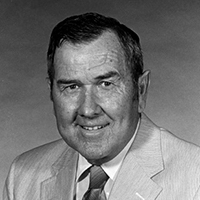
Charles W. Barrow graduated from the Baylor University School of Law in 1943 then joined the US Navy during World War II. He continued to serve in the Navy Reserves until 1976. In 1945, Barrow began practicing law in San Antonio, Texas, and by 1959, became a District Judge of the 45th Judicial District Court. Judge Barrow was appointed to the 4th Court of Civil Appeals in 1962 to fill the vacancy left by his father’s death. In 1967, he was elected to this position and served until 1977, the year he was appointed to the Texas Supreme Court.
Judge Barrow was elected twice to the Supreme Court, in 1978 and 1982. He eventually resigned to serve as Dean of the Baylor School of Law from 1984-1991. In 1991, he returned on a part-time basis as a Senior District Judge in San Antonio until his retirement in 1996.
The Collection
The Charles W. Barrow papers, dated 1939-2006, include 9 boxes of campaign materials, photographs, scrapbooks, newspaper clippings, and memorandums.
The Personal series includes General items such as family papers, military records, correspondence, event programs, newspaper clippings, campaign materials, and certificates and awards. The Photographs and Scrapbooks series includes family photographs and photos taken while Barrow was a justice. The Texas Supreme Court series contains Applications for Writ of Error, newsletters, and Judicial Yearbooks.
Bob Bullock was a native Texan who loved the state and recognized the need to preserve its history. A third generation Texan, he translated that passion into service on the State Historical Commission in the 1960s.
His love for Texas and its history carried over to influence the preservation of his own records and the legacy of the 40 years he served the state.
The Bob Bullock Archive spans the years 1917-2003 with the bulk of the materials focused on Bullock’s political career from 1975-1999, when he was Comptroller of Public Accounts and the Lieutenant Governor of Texas. The Bullock Archive provides an account of the last quarter of the 20th century in Texas politics through the papers of one of Texas’s most legendary politicians and respected statesmen. The Archive also includes personal items and artifacts from his life donated by Bullock, members of his family, and friends. Together, these materials provide a window to the public and private sides of Bob Bullock.
The Bob Bullock Archive is divided into five collections:
Bob Bullock Campaigns papers, 1974-1997; bulk 1990. (49 boxes)
Bullock Campaign PDF Version
The Bob Bullock Campaigns papers detail Bullock’s four campaigns for Comptroller of Public Accounts in 1974, 1978, 1982 and 1986, and his campaigns for Lieutenant Governor in 1990 and 1994. The collection includes brochures, campaign files, correspondence, election results and polls, endorsements, financial material, invitations, itineraries, issue files, newsletters, position papers, press releases, publications, reports, and questionnaires.
Bob Bullock Comptroller papers, 1975-1990. (337 boxes)
Bullock Comptroller PDF Version
The Bob Bullock Comptroller papers chart Bullock’s 16 years of public service as Texas Comptroller of Public Accounts. The transformation and growth of the Comptroller’s office under Bullock is evident in the physical record.
Bob Bullock Lieutenant Governor papers, 1991-1999. (526.25 linear ft.)
Bullock Lt. Gov. PDF Version without Alpha Correspondence
Bullock Lt. Gov. PDF of Alpha Correspondence
The Bob Bullock Lt. Governor papers are arranged chronologically by year and legislative session. During the years 1992-1995, the Texas Capitol was under an interior restoration and expansion project. The Lieutenant Governor’s Office was relocated, thus the files from the 73rd and 74th Legislatures were combined. While Administrative files are present, the bulk of this series are correspondence to and from state offices, legislators, elected officials, and ex-elected officials. Also included are issue files and travel itineraries. Series titled “Alpha Correspondence” are restricted.
Bob Bullock Media papers, 1971-1998. (260 boxes, 130 linear ft.)
The Bob Bullock Media papers are comprised of audio/visual material from Bullock’s years as Comptroller and Lieutenant Governor. Formats include audio and video cassettes, tapes and reels; digital information on CDs, DVDs, and computer backups; microfilm; newspaper clippings and press releases; political cartoons; and speeches. Please contact the archives for assistance.
Bob Bullock Personal papers, 1917-3003; bulk 1970-1999. (600 boxes, 302.25 linear ft.)
The Bob Bullock Personal papers cover Bullock’s career, in which he was honored with dozens of awards by national, state, civic, and government organizations and associations. With each award came certificates, plaques, and trophies. Most of them are in the collection, along with his education and law degrees, military records, and the commissions for each of the offices he held during his 40 years of state service.
Some of the treasures in the memorabilia are the personal photographs and family scrapbooks kept by Bullock's mother, family letters, correspondence and genealogical materials compiled by Bullock and his older brother, Tom. Please contact the archives for assistance.
The W. R. Poage Legislative Library also has videos featuring Bob Bullock hosted by YouTube.
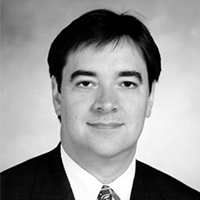
Jim Dunnam served in the Texas House of Representatives (District 57) from 1997-2011. He attended Baylor University, attaining his BBA in 1986 and JD from Baylor Law School in 1987, then began work as a member of his family’s law practice, Dunnam & Dunnam, L.L.P.
Dunnam was named leader of the House Democratic Caucus from 2003-2011. His major bills included charter-school reform and restrictions on open containers of alcohol in cars. Additionally, he worked to improve public schools, economic development, and affordable health care; focused on the Bosque River and higher education; and oversaw the evaluation and re-authorization of the State Bar of Texas and the State Board of Law Examiners. In 2003, he led the controversial Killer Ds walkout to Ardmore, Oklahoma to stall Republican Tom DeLay’s mid-decade redistricting plan.
Dunnam served on the Texas Supreme Court Rules Advisory Committee, Texas Sunset Advisory Committee, House Select Committee on Judicial Interpretation of Law, and the House Committee for Oversight of Family Law and Texas Family Code. He served as Chair of the Interim Committee on Charter Schools, the Select Committee on Federal Economic Stabilization Funding, and as Vice-Chair of the Committee on Criminal Jurisprudence.
The Collection
The Jim Dunnam papers cover 1982-2011 with the bulk from 1997-2011. Materials document Dunnam’s service as a Texas Representative during these years. The papers cover a wide variety of topics pertinent to District 57, including the Bosque River, charter schools, education, health, lawsuit reform, redistricting, school finance, Supreme Court of Texas, taxes, the Texas Youth Commission, and tort reform. There is a significant amount of material related to the Killer Ds walkout to Ardmore, Oklahoma.
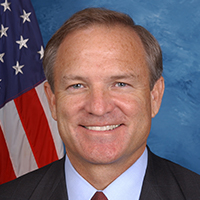
Chet Edwards began his political career in 1974 working for Rep. Olin E. "Tiger" Teague (TX-6) as a legislative and district administrative assistant. Edwards was encouraged by Teague to become his successor in 1978 but lost in the Democratic primary to Phil Gramm.
From 1983-1990, Edwards served District 9 in the Texas Senate. He was on the Health and Human Resources Committee, and chaired the Senate Nominations Committee, the Texas Sunset Commission, the Committee on Business, Technology, and Education, and was vice chair of the Texas Election Code Revision Committee.
Edwards supported educational improvements, including public education reform and education for women and minorities in engineering. He also worked on High Technology economic development legislation, especially research on the Superconducting Super Collider. His labor and business legislation included workers’ compensation reform, trucking deregulation, and the Texas Growth Fund. Edwards was also involved in strengthening the Board of Medical Examiners, passed legislation requiring criminal background checks for nursing home employees, championed senior citizens, and reformed the primary election process by passing Super Tuesday legislation.
The Collection
The Chet Edwards State Legislative papers cover an expanse of 1957-1991, with the majority from 1982-1990 from Edwards’s service as a Texas State Senator. Materials include legislation, correspondence, topical files, and other administrative materials.
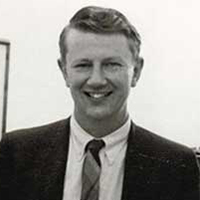
Jack E. Hightower served in the US Navy during World War II. After returning home, he earned a B.A. (1949) and LL.B. (1951) from Baylor University. Upon admittance to the Texas Bar, Hightower began a long, diverse political career as the District Attorney for the 46th Texas Judicial District (1951-1961). He simultaneously served a term in the 53rd Legislature of the Texas House of Representatives (1953-1955). Hightower later served in the Texas Senate, representing the 23rd District (1965-1967) and the newly created 30th District (1967-1974).
Hightower then set his sights on the national stage, ultimately serving in Congress, 1975-1985, representing TX-13, a rural region of west Texas including Amarillo and Wichita Falls. In 1985, he became the first Assistant Attorney General of Texas under Jim Mattox before serving as a justice on the Texas Supreme Court (1988-1995). President Bill Clinton appointed Hightower to the National Commission on Libraries and Information Science, a position he held from 1999 to 2004.
The Collection
This collection is currently being processed. A new finding aid will be available once the project is complete. Please email bcpm@baylor.edu if you have any questions about the collection.
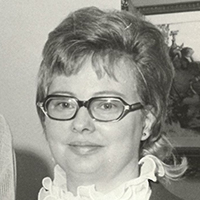
Lola Hopper began work in 1985 as a secretary for Terrell Blodgett, Administrative Assistant to Texas Governor John B. Connally. In 1969, she became the office manager for Donald Adams during his time as a State Representative and a State Senator. When Adams left office in 1978, Hopper took a job in the TXU lobbying office until 1987 when she became office manager for State Senator Judith Zaffirini. In the 1990’s, Hopper worked for Texas Attorney General Jim Mattox in his Outreach for the Blind Project, then for Attorney General Dan Morales’ Child Support Division. Finally, she worked for the Texas MHMR department in Austin.
In 2002, Hopper retired yet remained an active volunteer for Democratic Party politicians and political causes. Most notably, she volunteered for the Hillary Clinton 2008 Presidential Campaign, coordinating volunteers for Clinton’s campaign stop in Waco and recruiting veterans to attend the event. She was chosen as a delegate to attend the 2008 Democratic National Convention in Denver, Colorado.
The Collection
The Lola Hopper collection contains mostly campaign materials from over 50 years of political activity, including yard signs, T-shirts, bumper stickers, photographs, and a large collection of political buttons. Hopper’s work for Donald Adams in the 1970's is indicated through letters from Adams and his wife Linda, office materials, photographs of Adams and his staff, and newspaper clippings. The collection also includes several items related to Adams as Governor for a Day on October 15, 1977.
Hopper also collected several artifacts from various renovations of the Texas Capitol Building from the 1960's - the 1980's, including bricks, chunks of masonry, nails, and a light fixture. Hopper kept them out of a respect for their historical value.
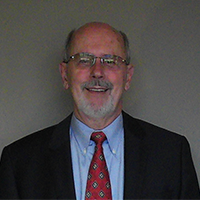
Richard A. Jenson, President of Jenson Research and Communications, founded his Austin-based business in 2005. Jenson had previously served as a consultant for political candidates in Texas, including Texas Supreme Court Justice Bill Kilgarlin.
Jenson extensively collected political campaign materials from the 1980s and 1990s. These include all branches and levels of government, but Jenson's prime areas of interest were the Texas Supreme Court and Appellate Court judicial races. Jenson donated the collection in 2014.
The Collection
The Richard A. Jenson collection dates from 1982 to 1997, with the bulk of the records being from 1988 to 1992. Collection materials are largely related to Texas political campaigns for all levels and branches of government, primarily focusing on the judicial and legislative branches, which comprise the two largest series. Material types include correspondence, fliers, clippings, posters, buttons, VHS tapes, and audio cassettes. There is a notable geographic focus on campaigns in the Travis County area, including local politics. Political candidates represented in the collection whose materials are housed at Poage Library include Jack Hightower, Chet Edwards, Bob Bullock, and Bill Vance.
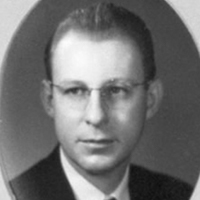
Ernest Ray Kirkpatrick, a veteran of the US Army during World War II, was elected to the Texas House of Representatives to represent the 41st District (1947-1952). He served on several committees including Contingent Expenses, Federal Relations, and Military and Veterans Affairs. He was also a member of the Appropriations Committee and was appointed chair at the age of 26.
Following his political career, Kirkpatrick graduated from the Baylor School of Law in 1958 and practiced law until he joined the State Board of Insurance in 1963.
The Collection
The Ray Kirkpatrick papers include a wide range of materials. The collection highlights Kirkpatrick’s military service, his tenure in the Texas House of Representatives, his studies at Baylor University, his time with the State Board of Insurance, and his involvement with the Masons.
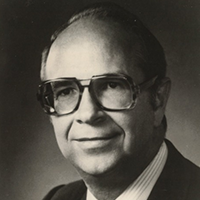
John Nesbett Leedom was a US Navy veteran during World War II. In 1961, Leedom began a career in public service, becoming the Dallas County Chairman for the Republican Party and later serving on Dallas City Council (1974-1980).
In 1980, Leedom successfully ran for Texas State Senate, serving on committees such as Education, Economic Development, and State Affairs. Leedom most famously wrote the Texas “Rainy Day Fund” law. He served as a delegate for the 1976 and 1988 presidential elections, supporting Ronald Reagan and George H.W. Bush respectively. He retired from the legislature in 1996 and continued work as a lobbyist until his death in 2011.
The Collection
The collection primarily contains documents concerning the Texas Republican Party, particularly as it relates to Dallas County. The scrapbooks house notes and correspondence between Leedom and his friends, constituents, and significant political figures including Barry Goldwater, Richard Nixon, Gerald and Betty Ford, Ronald and Nancy Reagan, and George H.W. Bush. As local chair of the Republican Party and a Dallas City Councilor, Leedom also collected materials pertaining to the party and its operations in the City of Dallas. As Leedom was involved in Texas politics for decades, the collection covers several Republican National Conventions, presidential campaigns, and local Texas elections, including his own.
The Baylor Collection of Political Materials is the official repository for the third largest political party in Texas, the Libertarian Party of Texas (LPTexas). In 1972, LPTexas became one of the thirteen original founding state parties at the first Libertarian Party convention in Denver, Colorado.
The Collection
This collection contains political materials related to the Libertarian Party of Texas with most of the materials dated 2000 to 2014. This includes campaign advertisements, yard signs, stickers, and posters related to Libertarian Party candidates in different levels of government.
This collection is currently unprocessed. Please email bcpm@baylor.edu if you have any questions about the collection.
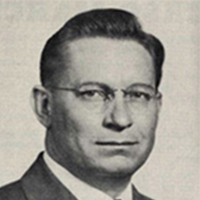
Caso March graduated from Baylor University with his bachelor’s, master’s and law degrees. From 1934 to 1942, March worked for the Federal Power Commission in Washington, D.C. After a tour of duty with the US Army during World War II, March returned to Waco as a faculty member for the Baylor School of Law.
March ran for the Texas governorship in 1946, 1948, and 1950, championing the slogan, “For every man, a tax-free home.” March was unsuccessful in his campaigns and became an attorney for the National Labor Relations Board.
The Collection
Most of the materials date from 1930 to 1950, chronicling March’s college education, his service in World War II, his time as a Baylor law professor, and ultimately his attempts to become Texas governor.
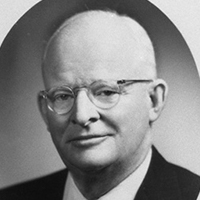
George Clarence “Cotton” Moffett, a veteran of the US Army Air Force during World War I, worked in the oil and lumber industries while managing his family farm. Moffett then turned to politics, serving in the Texas House of Representatives (1931-1939) as well as the Texas Senate (1939-1965). Moffett was a strong advocate for agriculture, technology, livestock, and military veterans. He earned the nickname “Cotton” through his work in the cotton industry.
The Collection
The George "Cotton" Moffett collection contains documents from 1933 to 1957. These years reflect Moffett’s service in the 42nd-58th Texas State Legislatures (1931-1965). The materials relate primarily to his campaigns for reelection: correspondence, flyers, business cards, postcards, and other election-related promotional materials.
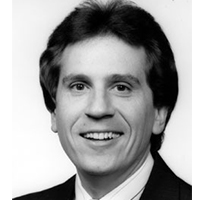
Allen Dwain Place, Jr. graduated from Baylor University with a BBA degree (1977) and a JD (1979). After passing the bar exam, Place started practicing law in his hometown of Gatesville.
In 1990, Place was selected to succeed Bob Melton as the Texas State Representative for District 57 (Bosque, Coryell and Hill Counties). Following redistricting in 1992, Place represented District 59 (Comanche, Coryell, Erath, and Hamilton Counties) until 1999.
He was a member of the Criminal Jurisprudence Committee, chairing the committee three terms. He also sat on the Calendars, Corrections, and Elections committees. In 1997, Place chaired the Senate Bill 97 Select Committee which revised stalking laws in Texas.
The Collection
The Allen D. Place, Jr. papers include correspondence, clippings, legislation, and committee work from the 1990s when Place was a Texas State Representative. The collection houses materials from various entities in state government including the Texas Commission of Alcohol and Drug Abuse, the Texas Department of Health, and the Governor’s office. Topics such as education, criminal justice, tort reform, school funding, and firearms feature prominently in the collection.
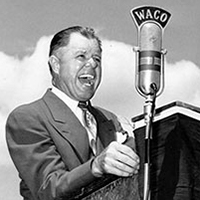
Finding Aid (PDF) | Finding Aid (Online) | Digital Collection
W. R. "Bob" Poage Personal Papers | PDF
William Robert “Bob” Poage graduated from Waco High School and joined the U.S. Navy during the last months of World War I. He graduated from Baylor University in 1921 with a bachelor’s degree in geology, taught geology at Baylor from 1922-1924, and earned his law degree and passed the Texas Bar in 1924.
In that same year, in 1924, Poage won a seat in the Texas House of Representatives. He served in the Texas House 1925-1929 while practicing law in Waco and teaching at Baylor Law School. In 1931, Poage filled a vacated Texas Senate seat by special election, ultimately serving in the Texas Senate from 1931-1937.
The Collection
The W. R. Poage State Legislative papers primarily cover Poage’s tenure as a Texas Senator. Materials include correspondence, campaign files, and subject files addressing issues such as horse racing, alcohol taxation, and the regulation of chain stores.
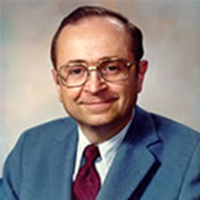
Bob Thomas graduated from Waco High School, Baylor University (1958), and Baylor Law School (1960). He practiced law and was elected as a state legislator from 1967 to 1970. Thomas served as County Judge of McLennan County from 1970 to 1982 before joining the Tenth Court of Appeals. He became Chief Justice of the court in 1989, a position he held until his death on February 21, 1996.
The Collection
The Bob L. Thomas papers include personal materials as well as legal documents. The personal papers contain correspondence, biographical information, and clippings; some of which relate to Thomas contracting Polio as well as memorials written after his death. The bulk of the collection consists of court opinions prepared for civil and criminal cases while Thomas served as a Justice of the Tenth Court of Appeals.
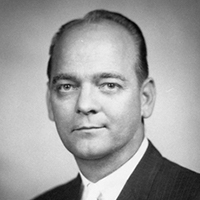
Byron M. Tunnell served in the Naval Air Corps during World War II before attending Baylor University for a law degree. He returned to his hometown of Tyler and served as an assistant district attorney before entering private practice. In 1959, future Texas politician Bob Bullock joined the practice, and the two became close friends.
Tunnell was elected to the Texas House of Representatives from 1956 to 1965, serving as Speaker of the House in his final term (1963-1965). He then left politics to join the Texas Railroad Commission (1965-1973). In 1973, Tunnell became a vice president for Tenneco Inc., a Houston-based oil and gas company. In the 1990s, Tunnell returned to public service as a member of the Board of Trustees for the Employee Retirement System of Texas and as a member of the State Conservatorship Board.
The Collection
The Byron Tunnell papers span from the early 1950s to 1999 shortly before his death. Materials in the collection depict his years of public service, primarily as a member and Speaker in the Texas House of Representatives and later as Texas Railroad Commissioner. Additional materials relate to his time as Vice President of Tenneco, Inc. and his appointments to the Employee Retirement System and State Conservatorship Board.
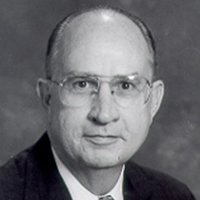
William R. “Bill” Vance worked as Assistant District Attorney for Brazos County from 1964-1967, and as County Judge from 1967-1978. From 1978-1990, Vance engaged in private legal practice, founding his own firm in 1982. In 1990, Vance won a seat on the 10th Court of Appeals, winning reelection twice and retiring in 2009.
Vance was also active in regional and statewide organizations. He organized and chaired the Brazos Valley MHMR Board of Trustees and was director/chair of the Brazos Valley Development Council. While practicing law, he served as a member of the State Depository Board (1982-1985) and State Finance Commission (1985-1986). He was elected president of the Bryan-College Station Chamber of Commerce in 1988 after two years as its Treasurer.
The Collection
The Bill Vance papers range from 1972-2009 and cover a portion of Vance’s public life as a court justice and candidate for state office. Materials in the collection display the negative view Texas media held toward the Court of Criminal Appeals, characterizing it as a partisan body so obsessed with “law and order” that it ignored evidence that might exonerate (or at least demand a new trial for) its appellants. Of particular interest are the campaigns’ existence in the context of debates surrounding the usefulness of DNA testing for overturning convictions.